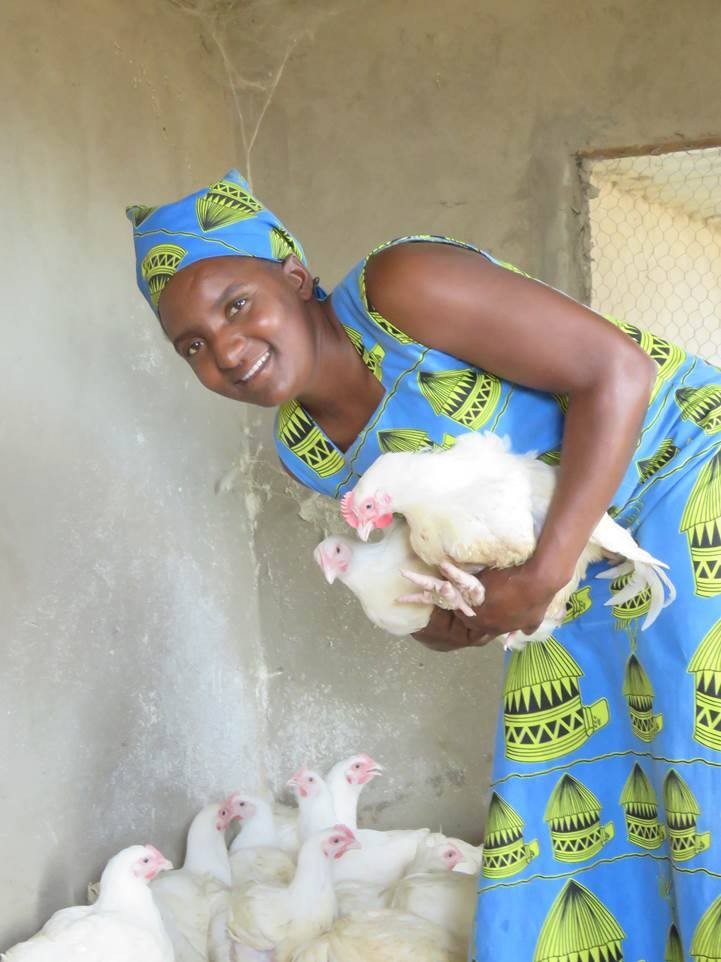
For Immediate Release
HARARE, ZIMBABWE
To recognize five years of promoting sustainable youth development in Zimbabwe, the International Youth Foundation is honoured to host the Zimbabwe:Works (Z:W) Celebration on September 6, 2017. Since its inception in June 2012, Z:W has collaborated with 27 local NGO and private sector partners in 12 districts to equip nearly 29,000 young people - more than half of whom are young women - with essential technical, vocational, financial, entrepreneurship, work readiness and life skills training.
Zimbabwe:Works, supported by the UK Department for International Development (DFID) the Swedish International Development Agency (Sida) and the United States Agency for International Development (USAID), was designed to address the persistent issues of youth unemployment, poverty, and economic gender disparity by strengthening the capacity of non-governmental organizations (NGOs) and private sector organizations to efficiently and effectively serve young people.
The project has achieved impressive results across its four core components: partner capacity building and gender mainstreaming, enterprise start-up and growth, financial inclusion, and access to formal sector employment. Phase II of the project, which has run from January 2015 to date, produced the following key outcomes:
- Z:W trained 15,000 youth (68 percent of whom are women) in entrepreneurial skills such as business idea generation, marketing, record keeping, costing and pricing and cash flow planning With newly acquired skills, Z:W participants are running businesses in the retail, agriculture, manufacturing, and information and communication technology (ICT) sectors.
- Z:W trained 5,200 youth (61 percent of whom are women) to improve work readiness and life skills for professional and personal growth.
- Through Z:W, 9,000 youth (68 percent of whom are women) received financial literacy training. Additionally, Z:W partnered with Zimbabwean micro credit associations to disburse nearly 5,000 loans worth $750,000 to grow youth-owned businesses.
- In total, Z:W participants generated $31 million in income and created 6,000 jobs for their fellow youth.
USAID Zimbabwe Acting Mission Director Julie Nenon stated: “USAID is excited to have supported this initiative that provides 29,000 young people with sustainable opportunities to fulfill their dreams.”
Head of DFID Zimbabwe Anabel Gerry said: “The UK remains committed to supporting youth entrepreneurship – out of the 15,000 youth trained in entrepreneurial skills, 68 percent were women, demonstrating how this programme has not only helped young people transition into full-time employment but it has also encouraged young women to forge new paths in non-traditional female occupations such as mechanics and animal husbandry. The UK thanks IYF and key stakeholders for such a successful partnership to strengthen and grow youth-owned enterprises in Zimbabwe.”
Maria Sellin, Head of Development Cooperation, Embassy of Sweden, stated: “This programme has also shown some of the benefits of partnering with private companies. Results show that more than 80 percent of the 1500 youth that took up internships via the programme have now transferred into formal employment.”
Reflecting IYF’s commitment to engage young people, this event aims to bring together public and private sector stakeholders, to celebrate young people’s successes and to promote dialogue that will motivate Africa’s young people, policymakers and business leaders to continue to advance youth development in Africa in the years ahead.
# # #
For more than 30 years, the American people, through USAID, have contributed over $3 billion in assistance to Zimbabwe. Current projects include initiatives to increase food security, support economic resilience, improve health systems and services, and promote a more democratic system of governance.
DFID Zimbabwe works to deliver a more democratic, stable and prosperous Zimbabwe, focusing on helping the country’s poorest people. Key priorities are:
Sweden’s annual support to Zimbabwe amounts to $25-30 million. The support primarily aims to build institutional transparency, enhance human rights & gender equality and to improve economic opportunities for women and youths. Other substantial parts of the support aim to enable vulnerable groups' and children’s access to social services as well as to strengthen community awareness and responsiveness to environmental shocks and climate change.
For more than 25 years, the International Youth Foundation’s (IYF) sole focus has been to help young people succeed. A global nonprofit organization, IYF believes success in life is secured by earning a livelihood. For most youth that means choosing a career path and landing that first job, while others decide to start their own small businesses or social ventures. Regardless of the road chosen, IYF has been by the side of more than 19.7 million youth in 105 countries, empowering them to overcome the obstacles that lie in their way to leading productive, fulfilling lives.
For additional information, please contact:
U.S. Embassy Harare Public Affairs Officer: David McGuire at HararePAS@state.gov
British Embassy Harare Press Officer: Sibusisiwe Ndlovu at Sibusisiwe.Ndlovu@fco.gov.uk
Embassy of Sweden, Communications Officer: Martin.buch.larsen@gov.se
International Youth Foundation Country Director: Pamela Chiromo at pchiromo@iyfnet.org
- • Providing infrastructure, assets, finance, skills and access to markets needed for people to earn enough money to meet their basic needs
- • Improving access to health, water and sanitation, and education
- • Helping to strengthen democracy and improve the way the economy and public finances are managed by the Government of Zimbabwe to support both economic development and poverty reduction.







Comment
Make a general inquiry or suggest an improvement.